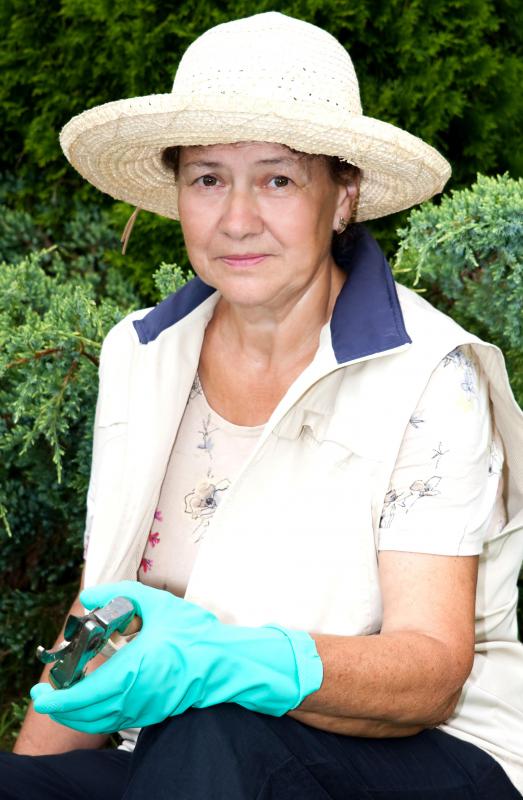At WiseGEEK, we're committed to delivering accurate, trustworthy information. Our expert-authored content is rigorously fact-checked and sourced from credible authorities. Discover how we uphold the highest standards in providing you with reliable knowledge.
What Is Therapeutic Horticulture?
Therapeutic horticulture refers to any use of horticultural activities for therapeutic benefits, whether self-initiated or provided within recreational, social, or vocational programming. These activities can occur in a variety of settings and are appropriate for individuals of any age or ability level. Potential positive aspects of therapeutic horticulture include stress reduction, client empowerment, and mood improvement in addition to physical and cognitive benefits.
The development of horticultural programming focuses on the interaction of plants and people via gardening activities, whether outdoors or indoors. In vocational settings, horticultural activities can aid individuals in learning to problem-solve, work on an independent bases, and follow instructions accurately. Regardless of the setting or population served, therapeutic horticulture typically gives clients feelings of self-esteem and responsibility as they gain skills in appropriately nurturing plants. Therapeutic horticulture activities can also promote social interaction and motivate cooperative action within a group. These transferable skills can later prove useful in other social or vocational life contexts.

Benefits of this therapeutic modality for the physical body include exercise of the fingers, hands, upper body, and eyes; stimulation through the five senses; and opportunities to bend, walk, and reach. When needed, adaptive techniques are often used for special populations, such as individuals with developmental disabilities or people with physical limitations. Therapeutic horticulture also benefits clients cognitively through use of skills such as memory, directed attention, orientation, and logic. The process of engaging with plants is believed to reduce stress and to be inspiring to clients.

Therapeutic horticulture should be distinguished from horticultural therapy, in which horticultural activities are led by a trained therapist with the intent of progressing toward clinical patient goals as established in a therapeutic treatment plan. Horticultural therapy most often occurs within a rehabilitation or hospital setting but can also take place in prisons, hospice settings, nursing homes, or psychiatric clinics. These type of therapists are trained to create healing gardens that are accessible and therapeutic for a wide range of people. They also learn to adapt garden tools for special needs and to combine plants effectively to stimulate sensory enjoyment for relaxation.

In the U.S., registration for the national horticultural therapy credential requires a four-year degree with appropriate coursework. A 480-hour internship in therapeutic horticulture is also required to become a horticultural therapist. A number of bachelor's and master's degrees in horticultural therapy are available in the U.S. as well as in a variety of international locations.
AS FEATURED ON:
AS FEATURED ON:














Discuss this Article
Post your comments